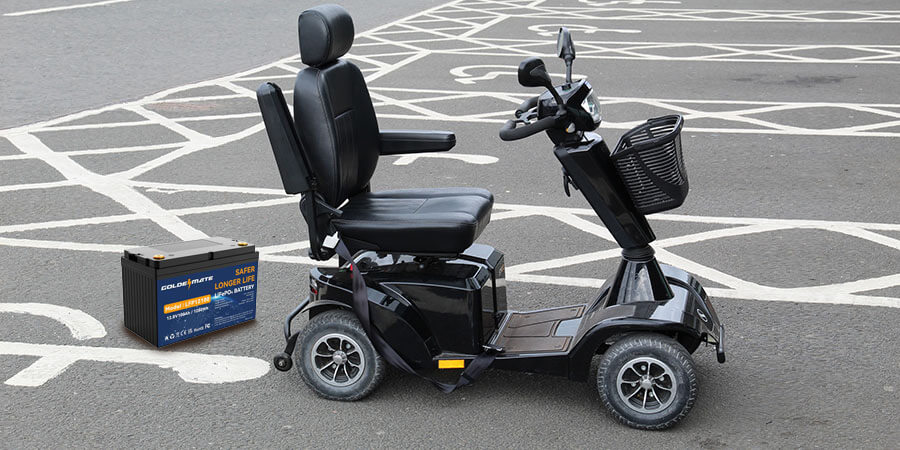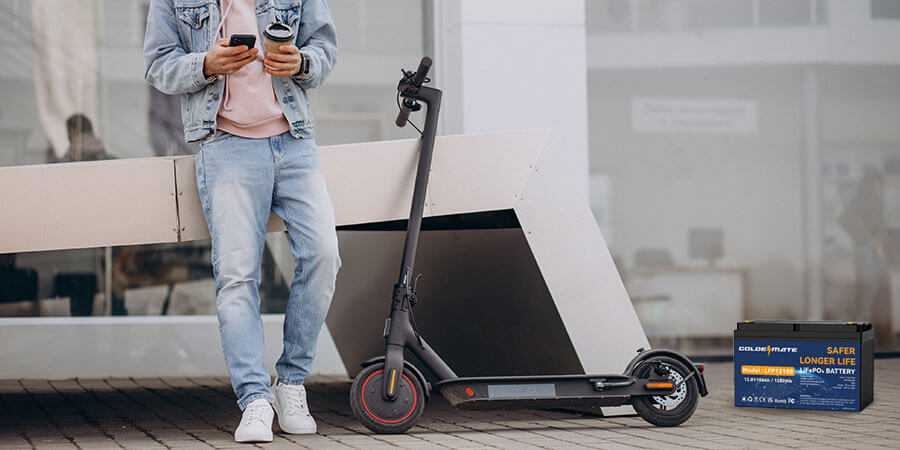Mobility is a fundamental aspect of human life, and it becomes even more critical for individuals with disabilities. The ability to move independently greatly enhances their quality of life, and technology has played a significant role in making this possible. Wheelchairs and mobility scooters have revolutionized the way people with mobility challenges navigate their surroundings.
However, the heart of these devices lies in their batteries, and the transition from traditional batteries to lithium batteries has brought about a revolution of its own.
Understanding Lithium Batteries
Overview of Lithium Batteries
Lithium batteries are a class of rechargeable batteries that have gained widespread use in various electronic devices. They are known for their high energy density, which means they can store a significant amount of energy in a compact and lightweight package. In the context of mobility aids like wheelchairs and mobility scooters, this makes them an ideal choice.
Types of Lithium Batteries
There are several types of lithium batteries, but two of the most commonly used in mobility aids are Lithium-Ion (Li-ion) and Lithium Iron Phosphate (LiFePO4) batteries. Li-ion batteries are known for their high energy density and are often used in consumer electronics and electric vehicles.
Suggestion: Top 9 Best Cars Under $50K 2023 Expert Review With Luxury Specs And Price
LiFePO4 batteries, on the other hand, are known for their enhanced safety features and longer cycle life, making them suitable for critical applications like mobility aids.
How Lithium Batteries Work
Lithium batteries operate on the principle of lithium-ion movement between the positive and negative electrodes. During charging, lithium ions move from the positive electrode (anode) to the negative electrode (cathode), and during discharging, they move back to the anode.
This movement of ions generates electrical energy, which powers the device connected to the battery. When searching for a reliable and efficient battery for scooter, it’s essential to consider the advantages of lithium batteries.
Advantages of Lithium Batteries for Wheelchairs and Mobility Scooters
Lightweight and Compact Design
One of the most significant advantages of lithium batteries for mobility aids is their lightweight and compact design. Compared to traditional lead-acid batteries, lithium batteries are significantly lighter, which reduces the overall weight of the wheelchair or scooter. This weight reduction is not only beneficial for users but also for transportation and maneuverability.
Longer Battery Life
Lithium batteries offer longer battery life compared to traditional batteries. This extended runtime on a single charge means that users can go longer distances without needing to recharge their devices. This is particularly advantageous for those who rely on mobility aids for daily activities, as it reduces the inconvenience of frequent recharging.
Faster Charging
Lithium batteries have the advantage of faster charging times. They can be charged more rapidly than traditional batteries, which is especially convenient for users with limited access to charging infrastructure. Faster charging means less downtime for the user and a quicker return to mobility.
High Energy Density
The high energy density of lithium batteries translates to increased power output. This is particularly valuable when navigating inclines or rough terrain. Users of mobility aids equipped with lithium batteries can experience improved performance and a smoother ride, even in challenging conditions.
Also Check: Check Out Top 5 Rental Car Companies That Allow Towing In 2023
Maintenance-Free
Compared to traditional lead-acid batteries that require regular maintenance, lithium batteries are virtually maintenance-free. They do not require topping up with distilled water or periodic equalization charges. This not only saves users time and effort but also reduces long-term costs associated with maintenance.

Safety Considerations
Temperature Sensitivity
Lithium batteries are sensitive to temperature extremes. Extreme heat or cold can affect their performance and lifespan. Users should be aware of temperature limitations and take precautions to store and operate their mobility aids within the recommended temperature range.
Overcharging and Undercharging Protection
Lithium batteries come equipped with built-in protection circuitry to prevent overcharging and undercharging, which can be detrimental to battery health. This safety feature ensures that the battery remains in optimal condition and prolongs its lifespan.
Proper Storage and Handling Guidelines
Users should be educated on proper storage and handling guidelines for lithium batteries. This includes storing them in a cool, dry place, avoiding exposure to extreme temperatures, and following manufacturer recommendations for charging and discharging.
Suggestion: Top Car Brands That Start With The Letter B – Cars That Start With B
Environmental Benefits
Reduced Carbon Footprint
The environmental benefits of lithium batteries cannot be overstated. Their higher energy efficiency and longer lifespan contribute to a reduced carbon footprint compared to traditional lead-acid batteries. The use of lithium batteries in mobility aids aligns with global efforts to reduce greenhouse gas emissions and combat climate change.
Recycling and Sustainability of Lithium Batteries
Lithium batteries are recyclable, and recycling programs are becoming more prevalent. Recycling lithium batteries not only reduces environmental impact but also conserves valuable resources like lithium, cobalt, and nickel. This sustainable approach to battery disposal is an important consideration for environmentally conscious users.
The Importance of Responsible Disposal
Proper disposal of lithium batteries is crucial to prevent environmental contamination. Users should be educated on the importance of recycling or disposing of lithium batteries at designated collection points to ensure their safe and responsible disposal.
Cost and Accessibility
Initial Investment vs. Long-term Savings
While the initial cost of mobility aids equipped with lithium batteries may be higher, the long-term savings are substantial. Reduced maintenance, longer battery life, and lower charging costs all contribute to cost savings over the lifespan of the device.
Government Incentives and Subsidies
Many governments and organizations offer incentives and subsidies to promote the use of mobility aids with lithium batteries. These financial incentives can help make these devices more accessible to a broader range of users.
Advancements in Affordability and Accessibility
As technology continues to advance, the affordability and accessibility of lithium batteries for mobility aids are expected to improve further. This means that more individuals with mobility challenges will have access to state-of-the-art devices that enhance their independence and quality of life.
Case Studies

Real-life examples of individuals benefiting from lithium batteries in their mobility aids serve as powerful testimonials. These case studies showcase the transformative impact of lithium battery technology on the lives of people with mobility challenges.
Future Trends
The future of lithium batteries in mobility aids looks promising. Innovations in lithium battery technology are likely to continue, with an emphasis on improving energy density, safety features, and overall performance. Integration of smart features and connectivity options will also play a significant role in enhancing the user experience.
Conclusion
Lithium batteries have emerged as a game-changer in the world of mobility aids. Their lightweight design, longer battery life, faster charging, and high energy density provide numerous advantages to users. Additionally, their environmental benefits, safety features, and potential for cost savings make them a compelling choice for individuals with mobility challenges.
As technology continues to advance, the adoption of lithium batteries in wheelchairs and mobility scooters promises to empower individuals with disabilities and improve their overall quality of life.






